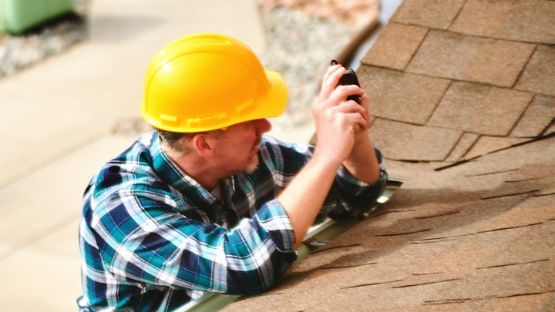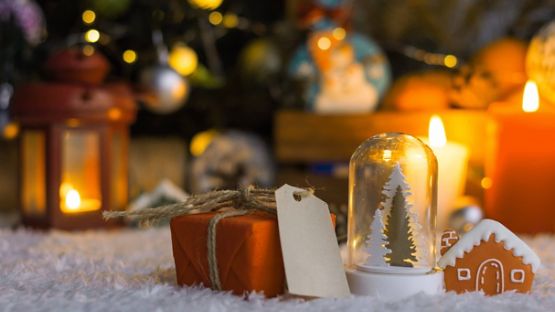Water damage can spell disaster for your home, leading to costly repairs, mould growth and even long-term structural issues. In Canada, where weather conditions can swing from heavy rainfall to freezing temperatures, the risks are even greater. Fortunately, with the right preventive measures, you can protect your home from water damage before it happens.
Key takeaways
- Water damage can result from natural factors like heavy rainfall, ice dams and frozen pipes, as well as human-made issues such as plumbing failures and poor drainage systems.
- Regularly inspect plumbing, maintain appliances and install water alarms and shut-off systems to catch problems early and prevent indoor water damage. Additionally, clean gutters, maintain your roof, ensure proper grading around your home and manage snow removal to prevent water damage from external sources.
- Know how to shut off your water main, have an emergency preparedness plan and keep a grab-and-go bag ready for extreme situations. Plus, check your home insurance policy to understand your coverage for water damage and consider additional options for comprehensive protection.
Top causes of water damage
Water damage can occur from a variety of natural and human-made causes. Understanding these can help you better prepare and prevent potential issues.
Natural causes
Knowing the natural causes of water damage can help you anticipate and mitigate potential risks. Here are some common environmental factors that could threaten your home:
- Heavy rainfall, snowmelt and flooding: Canada's diverse climate can lead to heavy rains, rapid snowmelt and occasional flooding. If not properly managed, these can cause water to seep into your home.
- Ice dams: In winter, ice dams can form on your roof, causing water to back up and leak into your home.
- Frozen pipes: When temperatures drop, pipes can freeze and burst, leading to significant water damage.
Other causes
In addition to natural factors, issues inside your home or in its construction can also contribute to water damage. Addressing these common problems can help you avoid costly repairs and maintain a dry, safe living environment.
- Plumbing failures: Leaky or broken pipes are a common cause of water damage. Even a small drip can lead to big problems over time.
- Malfunctioning appliances: Appliances like dishwashers, washing machines and water heaters can malfunction and cause leaks.
- Poor drainage systems: Clogged gutters, downspouts and poor yard drainage can direct water toward your home instead of away from it.
Five steps to help prevent indoor water damage
Proactive measures and regular maintenance go a long way to preventing water damage. These small seasonal steps can help significantly reduce the risk of costly water damage.
1. Regular plumbing inspections
- Inspect pipes, hoses and faucets: Regularly check all visible pipes, hoses and faucets for signs of wear, leaks or corrosion. Even minor issues can evolve into major problems if left unaddressed. Early detection allows for timely (and more affordable) repairs and helps avoid extensive water damage.
- Professional inspections: Consider scheduling annual inspections with a licensed plumber to ensure your entire plumbing system and plumbing fixtures are in top-notch condition. They can identify potential vulnerabilities that may not be visible to an untrained eye. Always keep the contact information for local plumbers and water damage restoration services easily accessible so that you can act quickly in case of an emergency.
2. Appliance maintenance
- Routine checks and upgrades: Appliances that use water, such as washing machines, dishwashers and water heaters, should be checked regularly for signs of wear or malfunction. Replace old or damaged hoses and inspect connections.
- Proper installation and maintenance: Ensure that appliances are installed correctly according to manufacturer guidelines. Regular maintenance and prompt repairs can prevent leaks and extend the lifespan of your appliances.
3. Install a sump pump or backwater valve
- Install a sump pump: Consider installing a sump pump to draw water away from the low-lying areas of your property. Sump pumps will help protect the structural integrity of your home’s foundation and are your best bet to get rid of the water entering your home. Make sure that the pump empties downslope at least 1.5 meters away from the exterior wall of your home.
- Install a backwater valve to prevent sewer backups: Consider installing a backwater valve to prevent raw sewage from entering the drains of the overloaded sewage system. A backwater valve is especially important if your home is at the bottom of a slope, with other homes and a sewer line running up the street: When water flows the opposite way from the sewer towards your home, the valve floats up to block it.
4. Install water alarms and shut-off systems
- Strategic placement of water alarms: Install water alarms in high-risk areas, such as basements, under sinks and near appliances. These alarms can alert you to the presence of water before it causes significant damage.
- Automatic shut-off systems: Invest in automatic shut-off systems that can detect leaks and stop the water flow at the source. These systems provide an added layer of protection by preventing extensive damage and reducing the need for emergency repairs.
5. Proper insulation
- Protecting pipes from freezing: Insulate exposed pipes, especially those in unheated areas like attics and basements, to prevent them from freezing during cold weather. Use pipe insulation sleeves or wrap them with heat tape to keep them from falling below temperatures that could cause bursting.
- Maintain adequate heating: Ensure your home is adequately heated during winter months to prevent pipes from freezing. Keep interior temperatures consistent (even if you’re going away on vacation), and avoid turning off the heat in unoccupied areas of your home.
By integrating these preventive measures into your home maintenance routine, you can safeguard your property against the risks of water damage and ensure a safer, more resilient living environment.
Three steps to help prevent water damage from outside your home
While indoor maintenance is key, protecting the exterior of your home is equally important for preventing water damage. Proper care of your home’s exterior can prevent water from seeping into your property.
1. Roof and gutter maintenance:
- Regular gutter cleaning: Clean your gutters and downspouts regularly to remove leaves, debris and other blockages. Blocked gutters can lead to water overflowing and pooling around your foundation, increasing the risk of water damage. Aim to clean gutters at least twice a year, or more often if you have overhanging trees.
- Gutter guards: Consider installing gutter guards to reduce the frequency of cleaning and prevent debris from entering the system.
- Roof inspections and repairs: Periodically inspect your roof for damaged, missing or loose shingles. Look for signs of wear, such as curling or cracking, and address these issues promptly to prevent leaks. Regular inspections, ideally once in the spring and fall, can help identify potential problems before they become major concerns.
2. Grading and landscaping
- Proper grading: Ensure that the ground around your home slopes away from the foundation. Proper grading helps direct rainwater and melting snow away from your home, reducing the risk of water seeping into your basement or foundation.
- Effective landscaping: Use landscaping techniques to manage excess water. Planting grass, shrubs and trees can help absorb and redirect rainwater. Be mindful of how landscaping changes can impact drainage and avoid creating areas where water might pool near your foundation.
3. Snow removal
- Regular roof snow removal: Remove snow from your roof during winter to prevent the formation of ice dams. Ice dams occur when melting snow refreezes at the roof's edge, causing water to back up under shingles and potentially leak into your home. Use a roof rake to safely remove snow from the edges of your roof while avoiding damage.
- Clear sidewalks and driveways: Keep driveways, walkways and other paved areas clear of snow and ice to prevent water accumulation and reduce the risk of slips and falls. Regular shovelling and salting can help manage snow and ice buildup.
By taking these proactive steps to maintain and protect the exterior of your home, you can effectively manage water runoff and prevent water damage from occurring. Regular upkeep and timely interventions will help safeguard your home and preserve its integrity.
Emergency preparedness and insurance
Despite best efforts, sometimes water damage occurs. In such situations, it’s important to have a plan and protection in place. Emergency preparedness for leaks and floods includes knowing where your water main is so you can promptly switch the water supply off.
While none of us likes thinking about extreme situations, having an emergency preparedness plan and a grab-and-go bag ready will give you peace of mind for some of the more extreme scenarios that may require a home evacuation.
Finally, if you’ve been wondering whether you are or are not covered if a water leak occurs, take this as a nudge to review your home insurance:
- Review: Review your insurance coverage to understand what types of water damage are covered. Knowing your coverage can help you make informed decisions and avoid unpleasant surprises.
- Consider additional coverage options: Although most homeowners' insurance policies help guard against a broken pipe, certain types of water damage may not be covered (e.g. sewer backup coverage). When choosing a homeowner's insurance policy, be sure to ask your insurance representative which coverage is best for you. Consider add-ons for sewer backup coverage or overland water coverage and service line coverage. These options can provide extra protection in areas prone to flooding or heavy rains.
- Document: Keep records of maintenance, inspections and repairs to support potential claims. If a situation arises, having detailed documentation can streamline the claims process and help you get the compensation you deserve.













